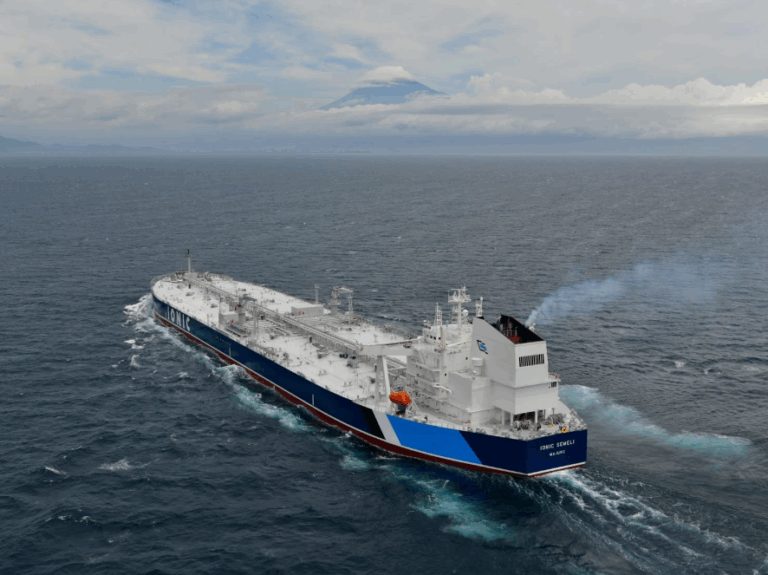Recently, Japan Marine United (JMU) delivered the 159,000 DWT energy-efficient Suezmax tanker Ionic Semeli to Greek shipowner Ionic Tankers. Compared with previously delivered vessels, this new vessel places greater emphasis on fuel efficiency.

The Ionic Semeli is 274.30 meters long, 48 meters wide, 23.15 meters deep, and has a gross tonnage of 82,909. It is equipped with an Exhaust Gas Cleaning System (EGCS), or scrubber, designed to remove sulfur oxides (SOx) from the onboard exhaust gases and prevent them from being emitted into the atmosphere. It meets Tier III nitrogen oxide (NOx) standards and third phase requirements of the Energy Efficiency Design Index (EEDI).
The vessel is equipped with a series of JMU-patented technological solutions designed to reduce energy consumption and minimize pollutant emissions, including the Super Stream Duct, which reduces energy consumption by approximately 3%; the Surf-Bulb, which enhances propulsion efficiency and reduces energy consumption by approximately 3-7%; and the ALV-Fin (Advanced Low-Viscosity Resistance Fin), which improves propulsion efficiency and optimizes fuel consumption. Additional environmentally compliant features include a ballast water treatment system and a list of hazardous materials (IHM).
Since the beginning of this year, the JMU has completed and delivered several new vessels, including the 211,981 DWT bulk carriers Mount Anjin and Mount Yotei, both owned by Singapore-based East Pacific Shipping; the LNG dual-fuel powered dry bulk carrier SG Twilight, owned by Nippon Yusen Kaisha (NYK); the 12,800 TEU container ship Maersk el Bosque, owned by Danish shipping giant Maersk; and the 3,055 TEU container ship Interasia Tribute, owned by Singapore-based shipowner Interasia Lines; and the 158,954 DWT Suezmax tanker Aesop, owned by Ambroisie Shipping.
Imabari Shipbuilding, Japan’s largest shipbuilding group, has increased its stake in JMU to 60%, making it a subsidiary. Japan sees this powerful alliance between the two shipbuilding groups as a turning point in the revival of its domestic shipbuilding industry, given the global dominance of China and South Korea.


